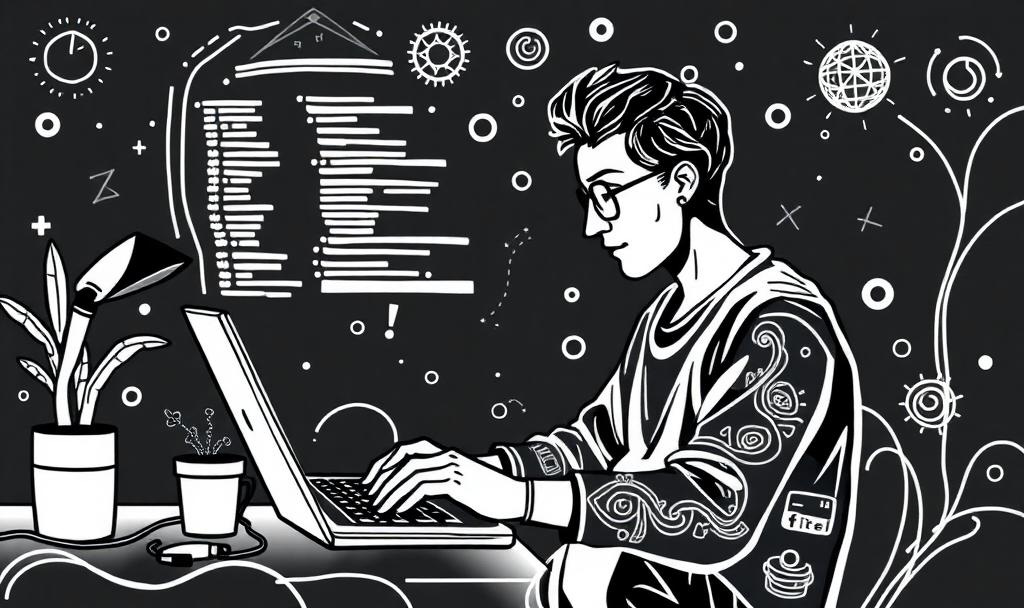Thriving as an Engineer in the Era of Vibe Coding
Why writing code is the easy part of building great software
Vibe coding, a term coined by Andrej Karpathy in 2025, is an AI-assisted programming approach that emphasizes intuition, fluidity, and creative flow. In this style, you work with a large language model almost like a pair programmer, “avoiding micromanaging the code, accepting AI-suggested completions liberally,” and focusing on iterative experimentation rather than perfection. Karpathy even describes it as “fully giving in to the vibes, embracing exponentials, and forgetting that the code even exists.”
This new paradigm can be exhilarating and empowering. Vibe coding can significantly amplify a developer's ability to produce working software quickly. But it also introduces a risk: being good at vibe coding does not automatically make you a great software engineer. Why? Because while AI can help write code, it cannot substitute for the human skills that define engineering excellence: sound judgment, system thinking, and, above all, effective communication and collaboration.
Code is Communication
In The Software Engineer’s Guidebook, Gergely Orosz emphasizes that success in engineering isn't just about writing good code. It's about working well with people. Writing clean, understandable code is only the beginning. You also need to:
Write clear documentation and PR descriptions.
Explain technical decisions to non-technical stakeholders.
Understand product requirements deeply.
Give and receive feedback constructively.
Navigate trade-offs with your team.
As Orosz explains, engineers are not hired just to type code. They're hired to solve problems. And problem-solving in a modern tech team means aligning your work with others, building on shared knowledge, and contributing to a larger system. AI might write the function, but it won’t align it with the roadmap, consider long-term maintainability, or negotiate a deadline.
The Two Pillars of Engineering Growth
1. Technical Excellence
Vibe coding is undeniably powerful here. It allows engineers to explore ideas faster, try multiple approaches, and spend more time on architecture and logic rather than boilerplate. It encourages experimentation and reduces the friction of starting something new.
But to grow technically, you must not rely solely on AI. You need to understand the code being generated, question its assumptions, and refine your mental models. Read systems code, study postmortems, go deep on architecture. As Orosz notes, senior engineers distinguish themselves by their ability to work across systems, not just within functions.
2. Communication and Integration
This is the pillar vibe coding doesn’t touch and it's often the harder one. The best engineers are those who can:
Take a fuzzy idea and drive it to a concrete implementation.
Write design documents that others want to read.
Lead conversations that surface risks early.
Mentor others, and scale their impact through influence.
As The Pragmatic Engineer blog often points out, much of senior engineering work is invisible. It’s in the Slack threads that prevent a misaligned launch. It’s in the architecture review that catches a scaling flaw early. It’s in the trust you build that makes your team faster and more confident.
How to Thrive in the Vibe Era
Use AI to augment, not replace, your thinking. Don’t accept every suggestion blindly. Be the editor, not just the prompt writer.
Practice writing, not just code. Clear writing is the foundation of clear thinking. Engineers who can communicate well unlock better collaboration.
Participate in team rituals with intent. Use stand-ups, reviews, and retros to share context, give feedback, and connect your work to the bigger picture.
Stay curious and go deep. Learn why something works, not just how. Follow the trail of a bug until you understand the root cause.
Seek feedback often. On your code, your communication, and your decisions. Growth comes from reflection.
Final Thoughts
Vibe coding is here to stay, and that’s a good thing. It can make us faster, more creative, and more fearless. But it is not a substitute for engineering maturity. The best engineers of this era will be those who ride the wave of AI and deepen their ability to collaborate, integrate, and lead.
Because in the end, the art of building software isn't just in the code you write. It’s in how well that code fits into a team, a system, and a shared vision. And that part still depends entirely on you.


